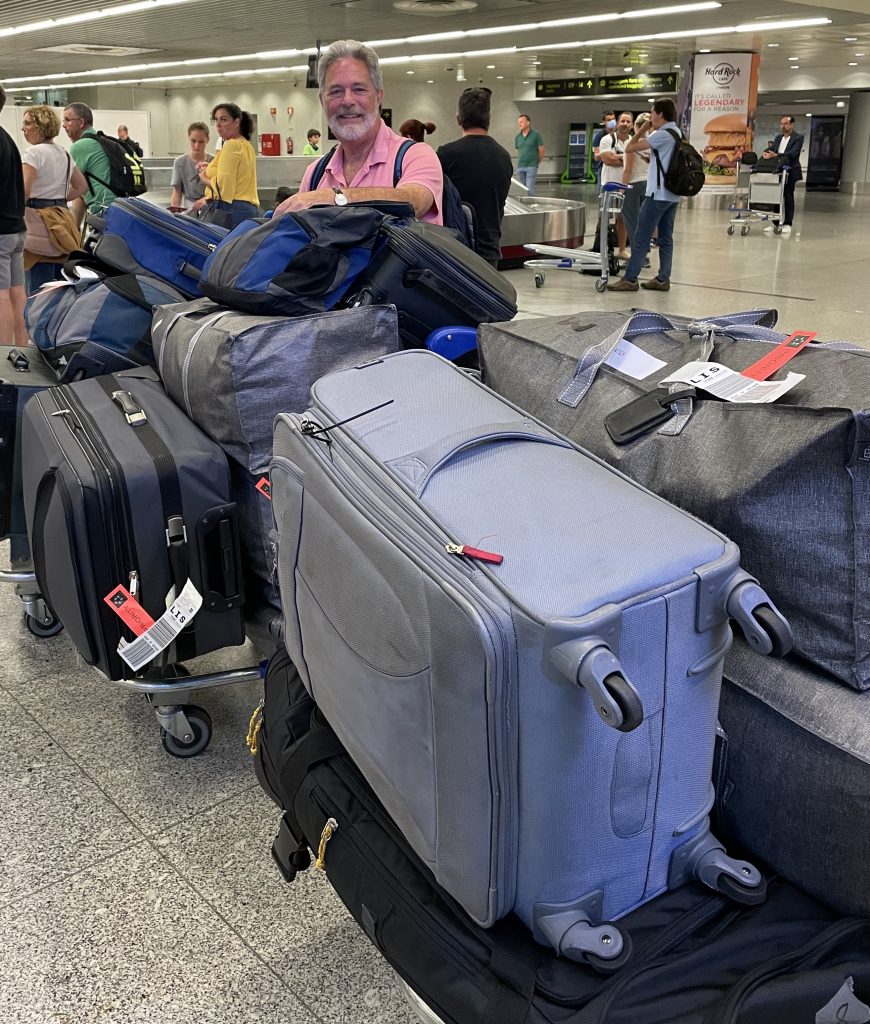It’s been nearly six months since I last posted here. That post was a look at dealing with baggage in the context of knowledge work. So I think the following image is fitting to account for the gap.

That’s me in the Lisbon airport on September 1st with fourteen bags of most of our worldly possessions. A few hours later, Charlotte and I would begin unpacking them in Nazaré, Portugal, our new home for the next chapter in our story.
While the move has been in the works since the early days of Covid, most of the execution has been packed into these last six months. We sold the house, sold the car, rented an apartment, bought a car, closed accounts, opened accounts, said goodbye to friends, started making new friends, and started learning Portuguese (a constant reminder of my general lack of decent study habits and a likely source of future blog posts about learning challenges in my dotage).
The closing graf in that earlier post was
If your value depends on making sense out of the collision between the present situation and what has come before you have to manage your understanding of both.
There’s an intuition there that I am still trying to unpack.
Donald Schön’s notion of reflective practice is central to understanding knowledge work. Experience is the raw material that fuels practice. Your practice improves as you process experience and make adaptations and changes. Schön’s argument was that the more intentionally and mindfully you process and make sense of experience, the better your practice gets.
There’s a scale problem here. Maybe more than one.
The first is the basic problem of information overload that faces all knowledge workers. The second scale problem is that more of us are knowledge workers. We’ll table that problem for another day.
Richard Saul Wurman wrote about information overload in the late 1980s in Information Anxiety as did Vannevar Bush in 1945 in “As We May Thinkâ€. Moreover, it’s an exponential growth problem that has nearly always exceeded the capacity of available coping strategies (willful ignorance doesn’t count as a coping strategy no matter how often it is chosen).
The spate of new PKM tools are the latest attempt to address this scale problem. It’s encouraging to see some recommended strategies for deploying the tools. What I would like to see is even more case studies of how we are all learning to leverage available tools.
I was about to add that I’ve made a mental note to work on case studies of my own practice. But, in point of fact, I’ve just finished capturing that “mental†note as an actual note. Stay tuned.
One aspect of the information overload problem I want to investigate is the metaphor of the blank sheet of paper. Sometimes it’s explicit. More often it’s hidden in the assumptions of new tools and new practices. Everyone wants to pretend that you start clean because it simplifies their problem. Dealing with whatever mess of prior systems and practices you’ve cobbled together over the years is your problem.
Which it is.
But it really helps to be aware that it is your problem and that it exists. Taking some time to see what is already on your sheet of paper is the first step to becoming a more effective reflective practitioner.
congrats on the move! i lived in germany for 3.5 years! so many things to learn in a new country ! enjoy it!